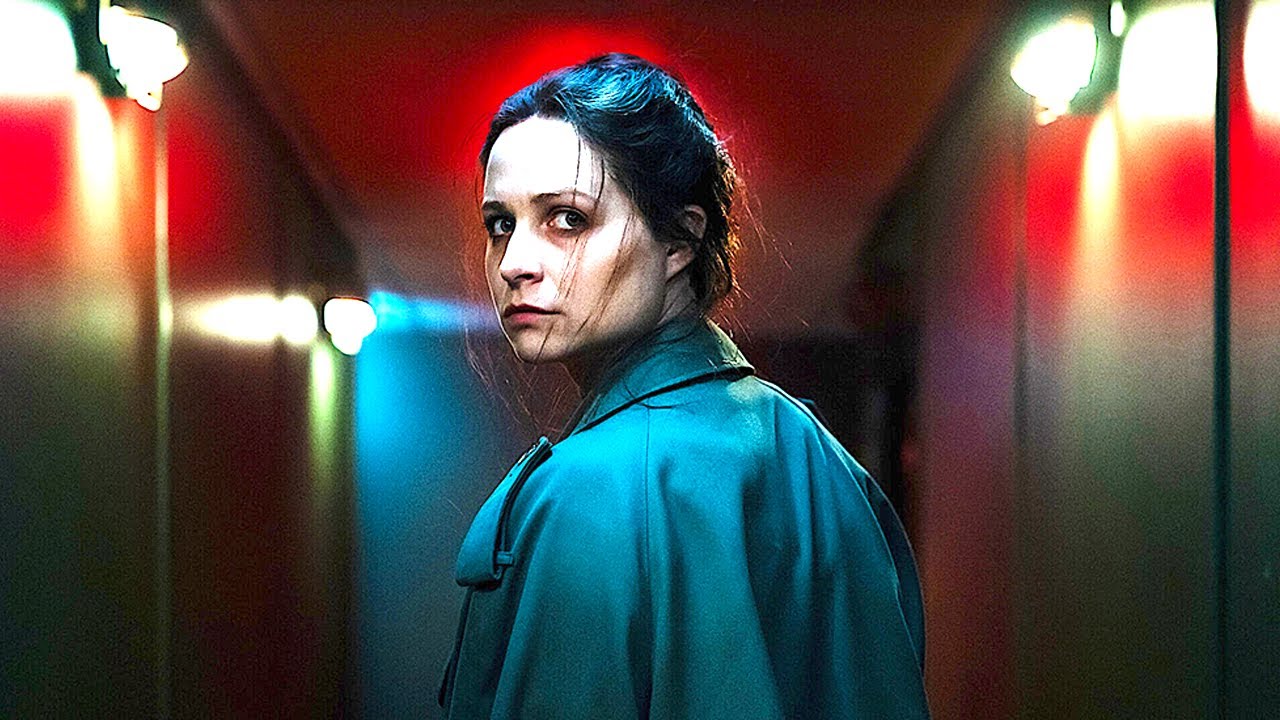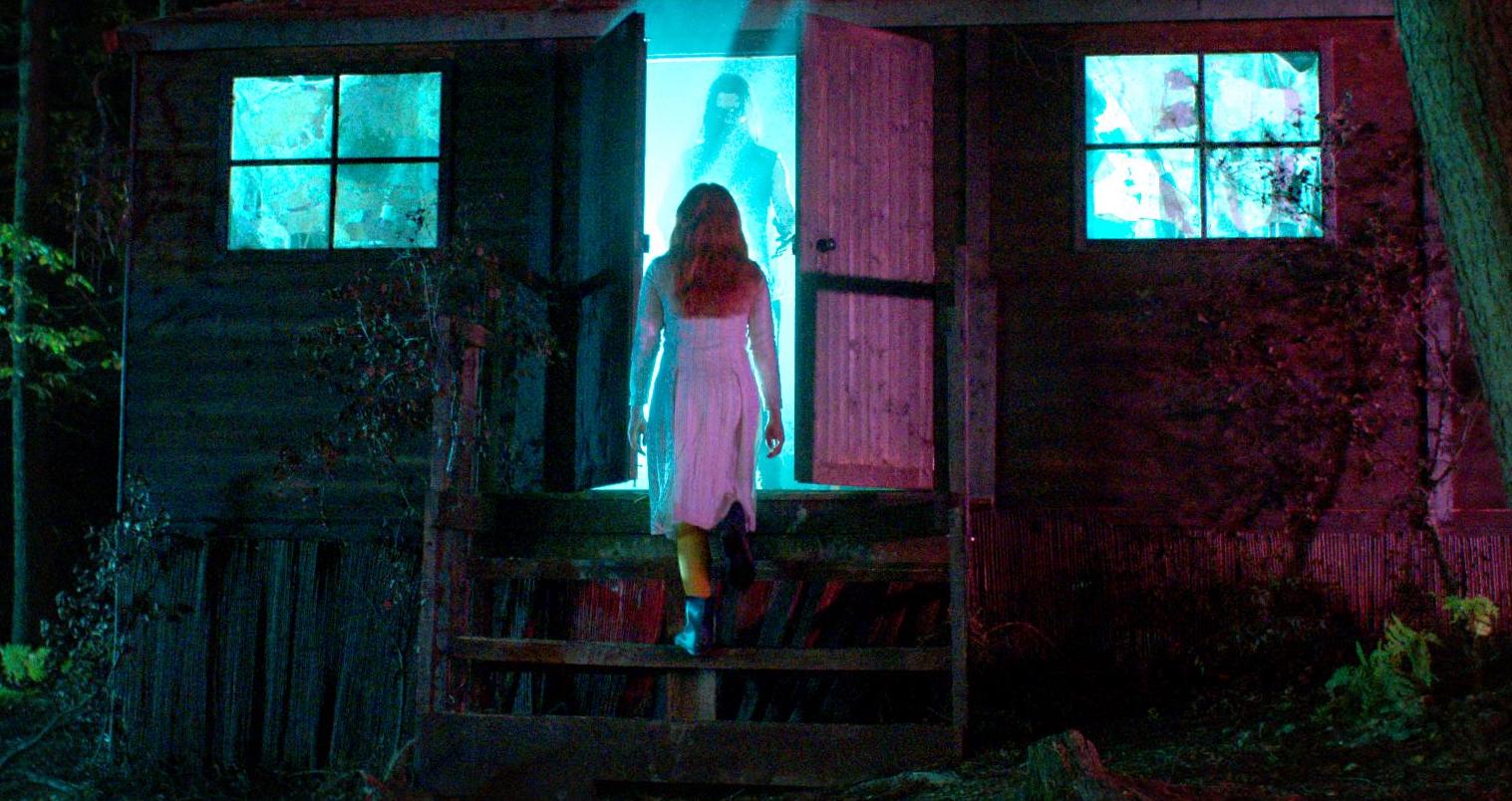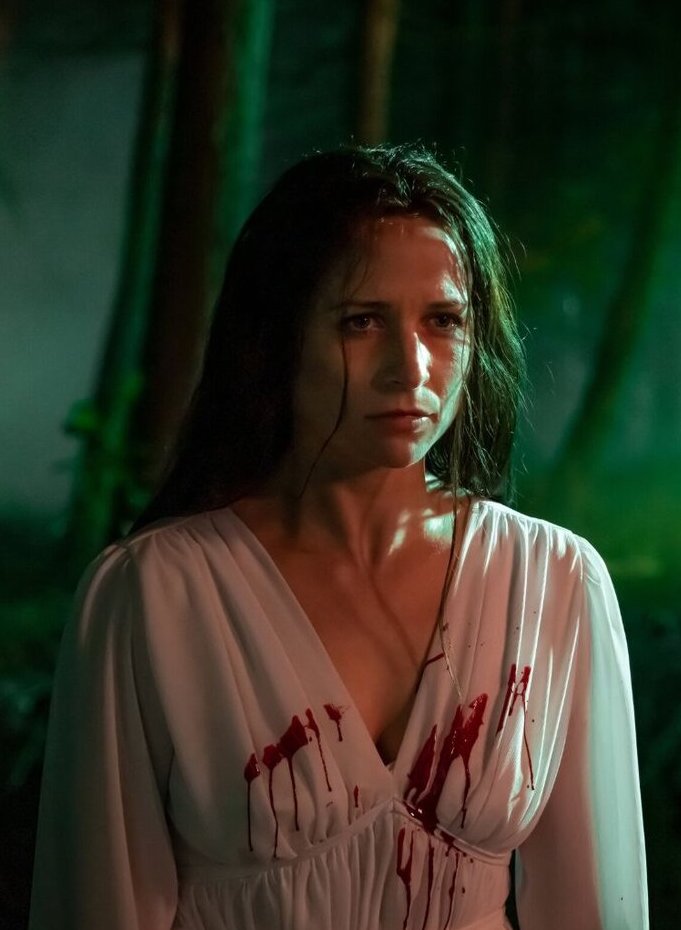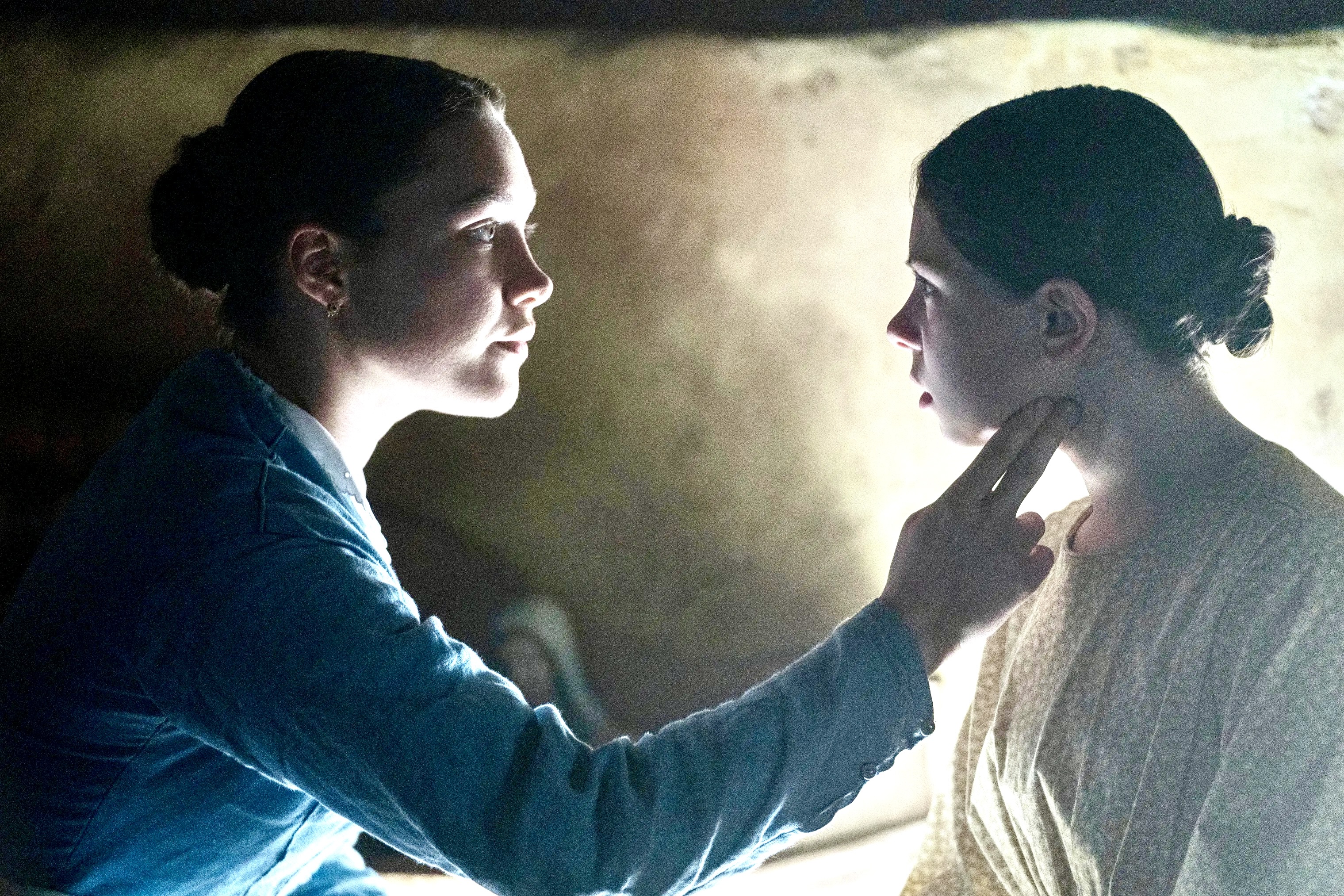
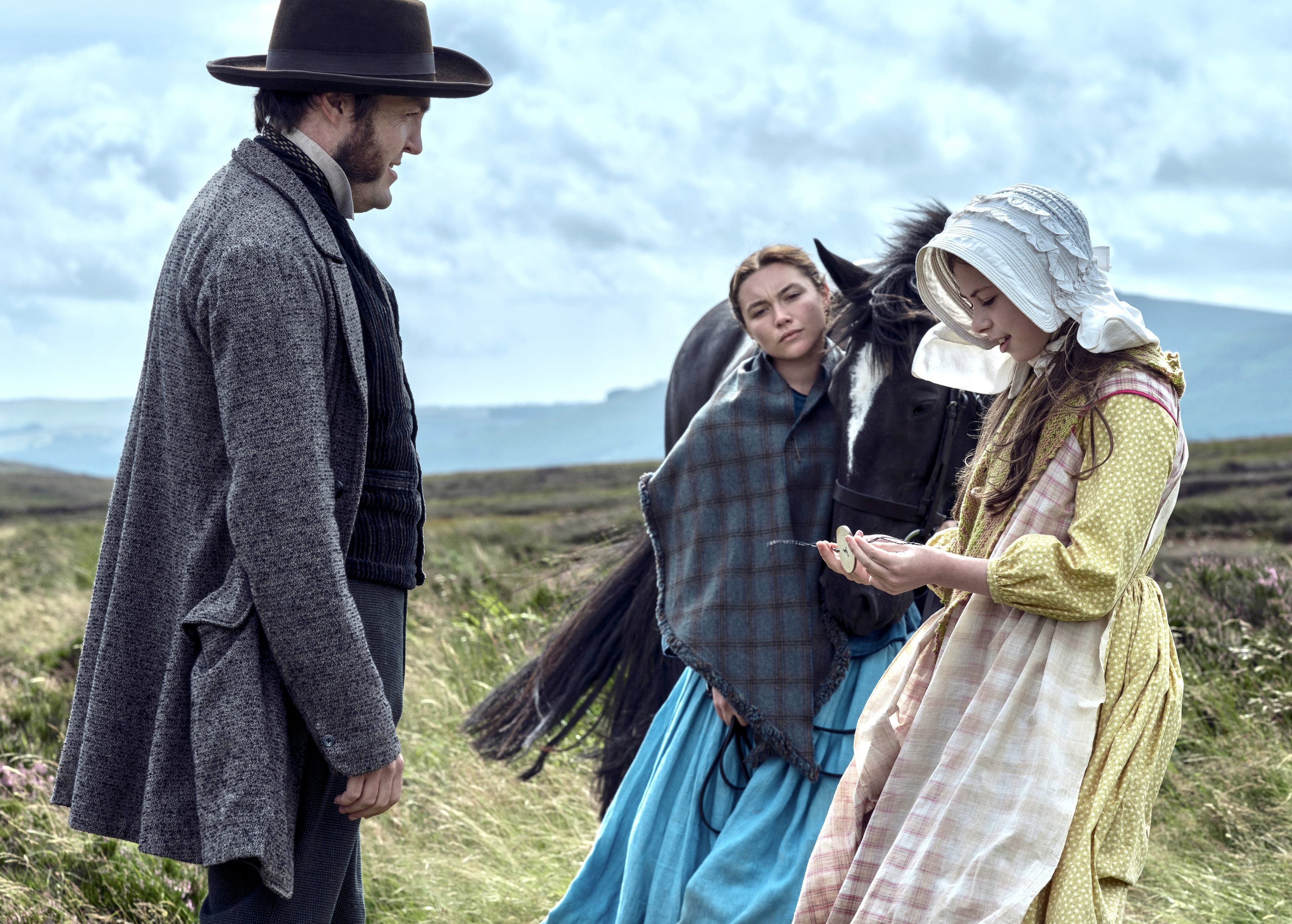
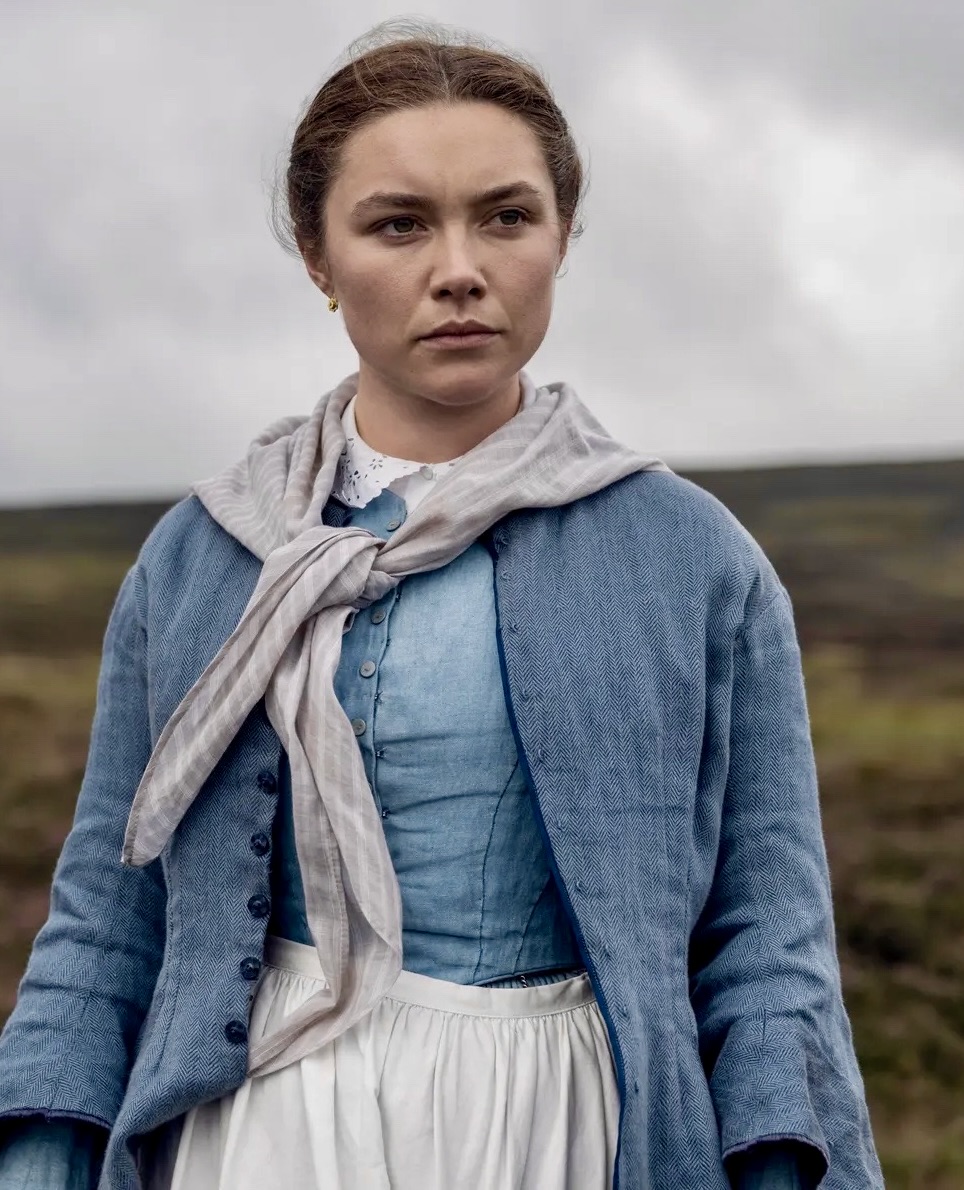
19/11/22
Netflix
Emma Donoghue’s The Wonder is a little jewel of a novel, a bleak tale seen entirely through the eyes of its main protagonist, Lib. Because the original story is so insular, I wondered if it would be a suitable subject for a film, but director Sebastián Lelio (who co-write the screenplay with Alice Birch) has done a creditable job of opening up the original vision, even throwing in some post-modernist flourishes to accentuate the artifice of the situation. The opening scene depicts a contemporary film studio, complete with lighting rigs and other equipment before the camera pans right and zooms in to the hold of a nineteenth century sailing ship, where Lib (Florence Pugh) is eating a meal. From the very beginning, Leilio seems to be warning us not take everything we see on face value. The Wonder, after all, is also a story of deception.
It’s 1862 and English nurse Lib Wright has been summoned to a remote Irish village to stand watch over the Wonder of the title – eleven year old old Anna O’ Donnell (Kila Lord Cassiday), who, it is claimed, has not eaten a morsel of food in four months and yet remains in apparently perfect health. Lib is understandably sceptical, but the local clergy, led by father Thaddeus (Ciarán Hinds), are keen to claim this as a bona fide miracle, a feather in the cap of the Catholic church. Dr McBrierty (Toby Jones), on the other hand, prefers to see Anna as some bizarre new mutation. Has she developed the ability to photsynthesise? Lib’s task will be to keep a close watch on Anna around the clock, alternating shifts with a nun, Sister Michael (Josie Walker), so that – if there is any secret feeding going on – it will soon come to light.
Lib’s suspicions are shared by newspaper journalist Will Byrne (Tom Burke), who has been despatched to his old stamping ground to investigate the claims, but the truth behind these ‘saintly’ events is well hidden and hard to root out…
The Wonder makes a successful transition from novel to film, largely because of Pugh’s sterling performance in the lead role, as well as through Ari Wegner’s moody cinematography, which somehow contrives to make every frame look like the work of a classic artist – Jan Vermeer perhaps, or Caravaggio. There are also a few moments where Anna’s older sister, Kitty (Niamh Algar), who also serves as the story’s narrator, breaks the fourth wall and addresses the viewer directly. Some may find these touches intrusive but, for me, they are so effective they have me wishing there were more of them and that Algar had a little more to do in the story – she’s a superb actor and this is little more than a supporting role.
Donoghue’s source novel, a scathing criticism of the Catholic faith and the gullibility of its followers, emerges intact – and those who anticipate a headlong plunge into despair should take heart. The film’s conclusion is more positive than you might expect.
4 Stars
Philip Caveney
